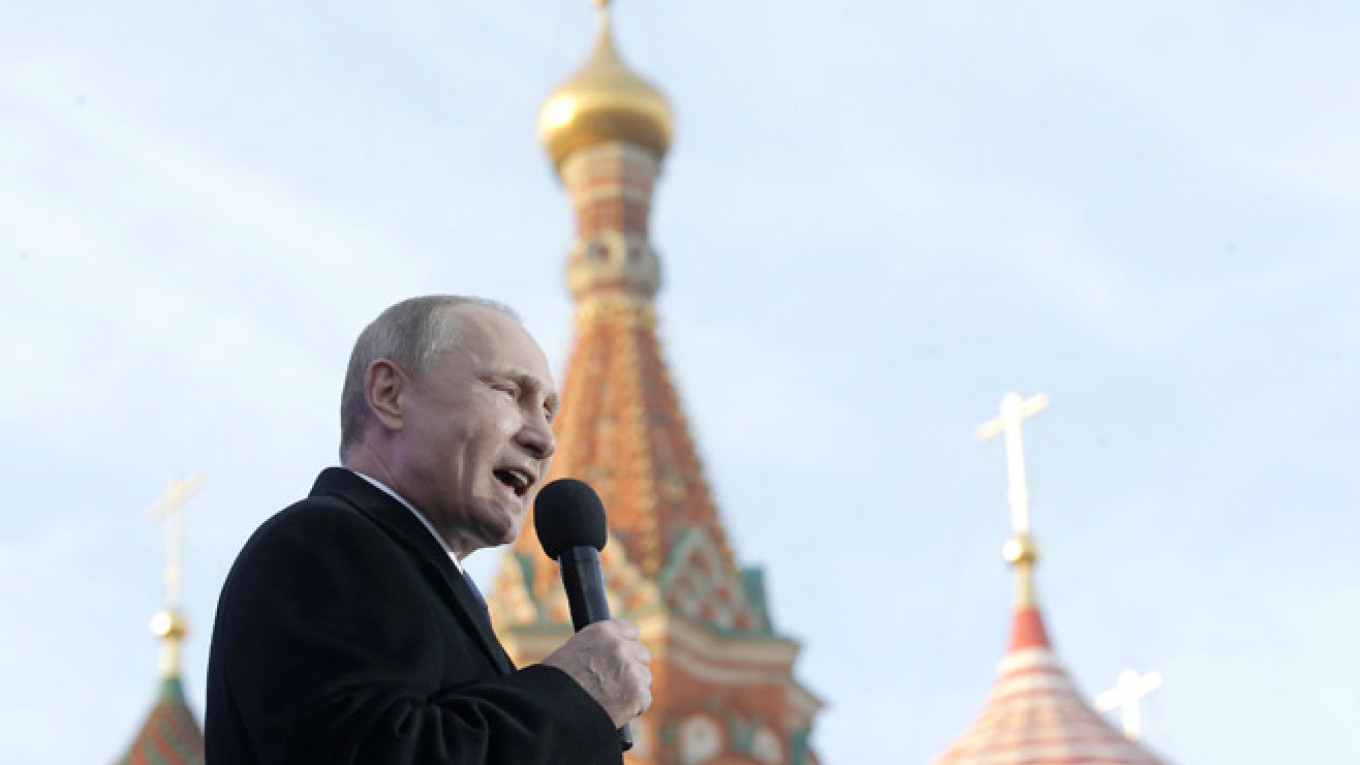Dear friends,
It has been more than a year since my last trip to Moscow. During this year much has changed in the direction President Vladimir Putin is taking Russia. I feel very differently about Russia now. Let me explain why.
Russia has been a central part of my academic and professional life. As a student I studied all things Russian and then devoted my career to trying to understand Russia and the Russian people. I wanted to contribute to improving relations between Russia and the United States. Throughout my career I have been aware of what we have in common, but also of the enormous challenges we face in overcoming our prejudices and preconceived notions of each other.
Over the years I remained optimistic that common sense would prevail as long as we were honest with ourselves and each other. Now, for the first time in many decades, I seriously question whether that optimism is still justified.
I am deeply saddened that Russia is again slipping into a form of authoritarianism where the interests of a few are pursued at the expense of the many. The government I see silences its opponents, demands total control of the mass media, pedals wild distortions of the truth and portrays the outside world as hostile.
I want you to understand that my disappointment is not that Russia failed to live up to Western expectations and standards, which many assumed Russia would adopt after the collapse of the Soviet Union.
Russia has always been different because of its unique history and its problems that set it apart from its neighbors. What may have been possible in the Baltic states and Poland never should have been applied to Russia as well. In the 1990s and early 2000s, was I guilty of being swept away by the tide of euphoria that raised expectations in the West and among segments of the Russian population that Russia, at last, was on the road to fundamental change? I was.
Over time, however, I realized that many of my compatriots were striving to create a reality in Russia that was at best illusory and at worst deceptive and harmful. And the Russians who yearned for access to all that they had been deprived of during the Soviet years and for a chance to start a free, new life realized — often bitterly — that the West was making certain promises it could not keep.
Clearly, everyone bears responsibility for the moribund state of the relationship today. Going forward, only frank and honest dialogue conducted at all levels can offer us an opportunity to reverse the downward spiral in Russia's relations with the West.
Unfortunately, I am not optimistic that this is an opportune time for effective engagement. Russia has entered a particularly dangerous stage in its history. The stability that had been a hallmark of the early Putin years is now seriously challenged. Almost all economic indicators are heading downward.
Even more important is that Putin's policy in Ukraine, his hostility toward the West and the resultant sanctions could have a negative impact on his inner circle. These actions could threaten the stability of the regime at the very top, creating a very dangerous and damaging dynamic in Russia and beyond.
It is not too late for Russia to reverse direction from its present course. I hope the day will come when the Russian people will live in a country where their voices are heard and the pursuit of their interests is the primary concern of their government.
I hope the day will come when the optimism that has prevailed throughout my life returns and I can once again feel inspired and hopeful about Russia's future.
Sincerely,
Bob
Robert E. Berls Jr. holds a Ph.D. in Russian Area Studies from Georgetown University. He was a career Air Force officer and served as air attache in the U.S. Embassy in Moscow from 1985 to 1988. Currently, he is senior adviser for Russia and Eurasia at the Nuclear Threat Initiative (NTI) in Washington, D.C.
A Message from The Moscow Times:
Dear readers,
We are facing unprecedented challenges. Russia's Prosecutor General's Office has designated The Moscow Times as an "undesirable" organization, criminalizing our work and putting our staff at risk of prosecution. This follows our earlier unjust labeling as a "foreign agent."
These actions are direct attempts to silence independent journalism in Russia. The authorities claim our work "discredits the decisions of the Russian leadership." We see things differently: we strive to provide accurate, unbiased reporting on Russia.
We, the journalists of The Moscow Times, refuse to be silenced. But to continue our work, we need your help.
Your support, no matter how small, makes a world of difference. If you can, please support us monthly starting from just $2. It's quick to set up, and every contribution makes a significant impact.
By supporting The Moscow Times, you're defending open, independent journalism in the face of repression. Thank you for standing with us.
Remind me later.






